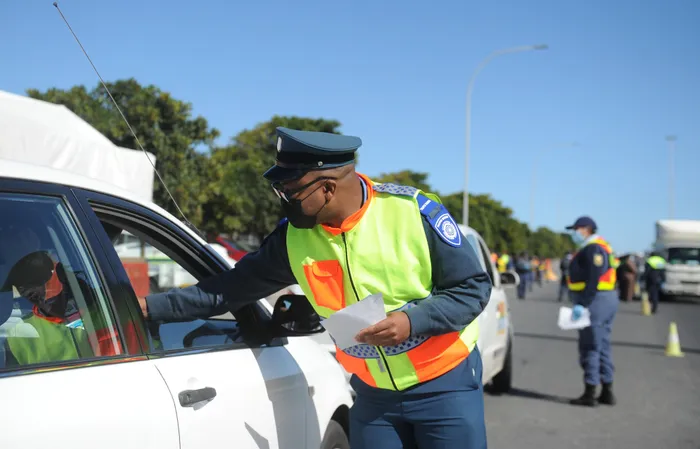Understanding the AARTO Act: Delays and implications for motorists

The AARTO system will decriminalise minor traffic infringements.
Image: Ayanda Ndamane / Independent Newspapers
The national launch date for the Administrative Adjudication of Traffic Offences Act (AARTO) has been pushed back to December 2025, the Road Traffic Infringement Agency (RTIA) confirmed.
RTIA spokesperson Monde Mkalipi confirmed that 69 municipalities throughout the country’s nine provinces will implement the AARTO system from the start of December, with the remaining municipalities set to follow in 2026.
This follows a week after a previous announcement that the launch would take place in October.
However, the controversial demerit points system that is the core feature of AARTO will only come into effect from September 2026 when the new enforcement framework enters its fourth and final phase, Mkalipi confirmed.
The RTIA said service outlets had been created across the country and over 25 000 traffic officers were currently being trained to implement the new system.
Mkalipi said AARTO would decriminalise minor traffic offences in order to take strain off the courts.
Rather than sending summonses to those who failed to pay their fines, which often do not even reach the courts, the new system would encourage compliance by blocking the renewal of vehicle and driving licences for those with outstanding fines.
Motorists who pay their fines within 32 days will receive a 50% discount.
If not paid during this initial period, the fine is elevated to RTIA level, where a courtesy letter is sent to remind recipients of their rights. Motorists then have a further 32 days in which to dispute the infringement or transfer it to another driver.
However, once the 64 days are up, an enforcement order may be issued, which blocks transgressors from renewing their licences.
So far this new process has only been applicable to Johannesburg and Pretoria, which formed part of the pilot phase for AARTO, but the new laws will also affect the 69 additional municipalities from December 2025. The RTIA has not named these towns and cities as yet.
Advocacy organisations such as the Automobile Association (AA) and the Organisation for Undoing Tax Abuse (OUTA) have challenged and criticised the AARTO system, with the latter initiating a court case in 2022.
The AA believes AARTO will not save lives as it is geared towards revenue collection rather than promoting safer roads.
“Introducing legislation will not solve the country’s road safety crisis. This merely creates an impression of action while nothing will change on the ground, where it is needed. As part of our contention, we point to the fact that there is no evidence that the AARTO pilot project saved a single life,” the AA said.
Get your news on the go, click here to join the Cape Argus News WhatsApp channel.
Cape Argus
Related Topics: